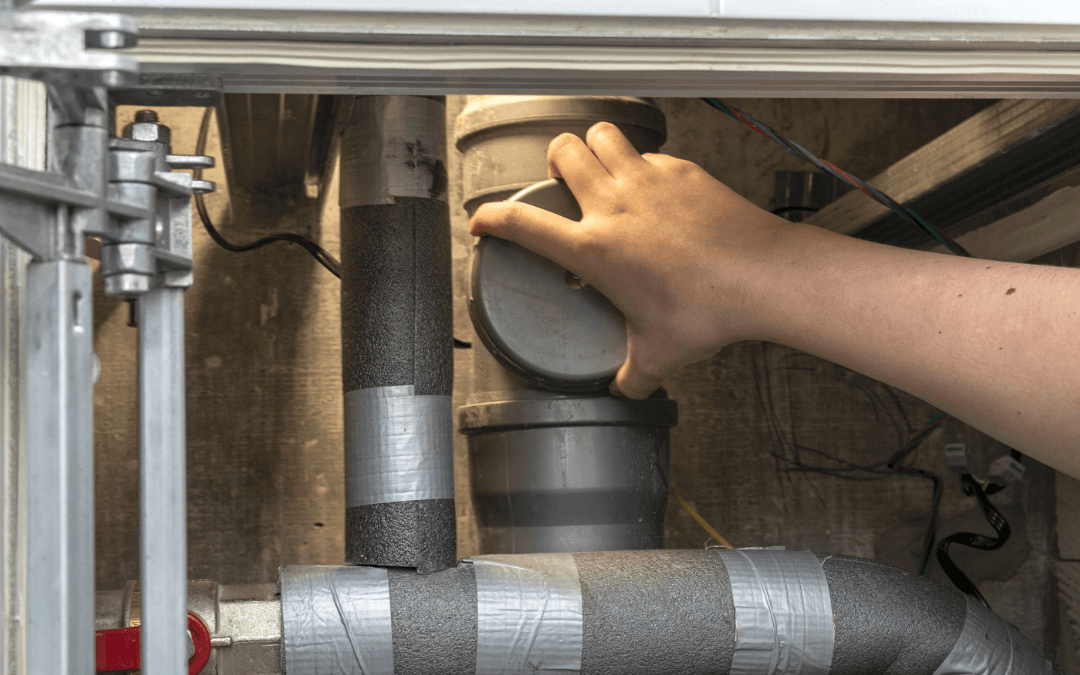Common Causes of Clogged Drains
Before discussing the methods to unclog drains, it’s important to understand the common causes of clogs. By identifying the underlying causes, you can implement preventive measures to minimize the occurrence of future blockages.
Accumulation of Hair and Soap Residue
Bathroom drains often become clogged due to the accumulation of hair, soap residue, and other bathroom products. Over time, these substances bind together, forming stubborn clogs that impede water flow.
Food Waste and Grease Buildup
Kitchen drains are prone to clogs caused by food waste, cooking oils, and grease. When these substances are disposed of down the drain, they can solidify and create blockages that require attention.
Foreign Objects and Mineral Deposits
Clogs can also occur due to foreign objects, such as jewelry, small toys, or sanitary products, being accidentally flushed or washed down the drain. Additionally, mineral deposits from hard water can accumulate and restrict water flow.
DIY Methods for Unclogging Drains
When faced with a minor drain clog, you can try several DIY methods before seeking professional help. Let’s explore some common DIY techniques for unclogging drains:
Hot Water and Baking Soda Solution
One of the simplest and most cost-effective methods involves combining hot water and baking soda. Start by pouring boiling water down the drain to soften the clog. Then, add a mixture of baking soda and water to create a fizzing reaction that can help dislodge the blockage.
Vinegar and Baking Soda Mixture
Another popular DIY method involves using a mixture of vinegar and baking soda. Pour a cup of baking soda down the drain, followed by a cup of vinegar. The chemical reaction produces foam that can break up the clog. Allow the mixture to sit briefly before flushing the drain with hot water.
Plunger and Drain Snake
A plunger or drain snake can be effective tools for more stubborn clogs. Use a plunger to create suction and dislodge the clog. If the clog is located deeper within the drain, a drain snake can be used to physically remove or break up the obstruction.
The Benefits of Professional Drain Cleaning
While DIY methods can be successful for minor clogs, professional drain cleaning offers several benefits for more complex or persistent blockages. Let’s explore why professional drain cleaning may be the right choice:
Advanced Tools and Techniques
Professional drain cleaners have access to advanced tools and techniques that can effectively tackle even the toughest clogs. They may use high-pressure water jetting, video inspections, or specialized drain cleaning equipment to remove the blockage thoroughly.
Thorough Inspection and Cleaning
When professionals are called in, they address the immediate clog and comprehensively inspect the entire drainage system. This helps identify any underlying issues or potential areas of concern. Moreover, professional cleaners ensure thorough cleaning to remove residual debris and prevent clogs.
Prevention of Future Clogs
Professional drain cleaners can guide preventive measures to reduce the risk of future clogs. They may recommend routine maintenance, such as periodic drain cleaning or installing drain guards, to catch debris and prevent it from entering the drainage system.
Choosing the Right Approach
Determining whether to use DIY methods or seek professional drain cleaning depends on several factors. Consider the following when making your decision:
Assessing the Severity of the Clog
Evaluate the severity of the clog. Minor clogs that are easily accessible and respond well to DIY methods can be tackled independently. However, if the clog persists or appears severe, it’s best to call professionals to avoid further damage.
Considering Time, Effort, and Skill Level
Consider your time availability, effort required, and skill level. DIY methods may be time-consuming and require physical exertion. If you need more clarification about your ability to handle the task or need more tools, it’s wise to seek professional assistance.
Balancing Cost and Long-Term Results
While DIY methods are generally more cost-effective, they may provide a short-term solution for persistent or complex clogs. Professional drain cleaning may involve an upfront cost but can offer a more complete and lasting resolution.
Conclusion
Unclogging drains requires understanding the causes of clogs and the appropriate methods for addressing them. At the same time, DIY methods can be effective for minor clogs. Professional drain cleaning offers advanced tools, thorough inspections, and preventive measures to ensure long-term results. Assess the severity of the clog, consider your capabilities, and weigh the cost against the potential benefits when deciding whether to tackle the issue yourself or call in professionals. Taking prompt action and choosing the right approach can restore proper drainage and maintain a clog-free plumbing system in your home.

